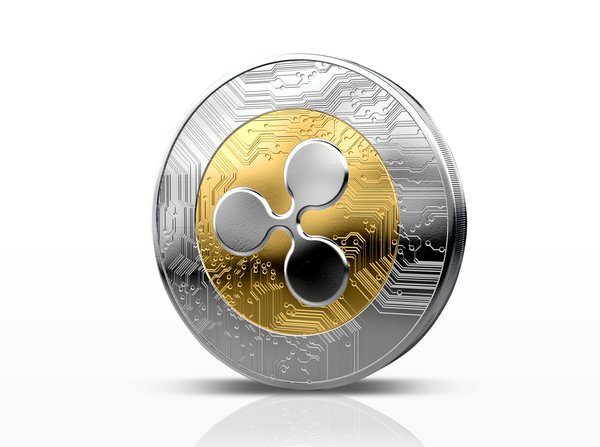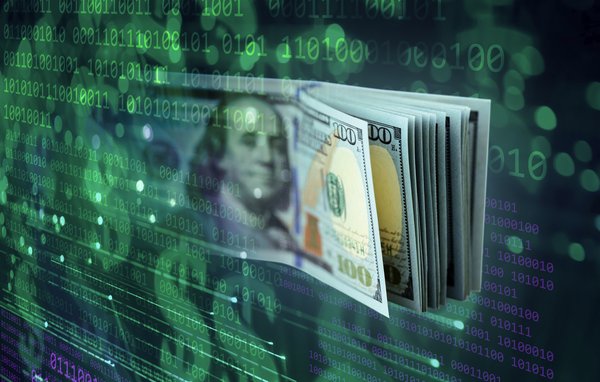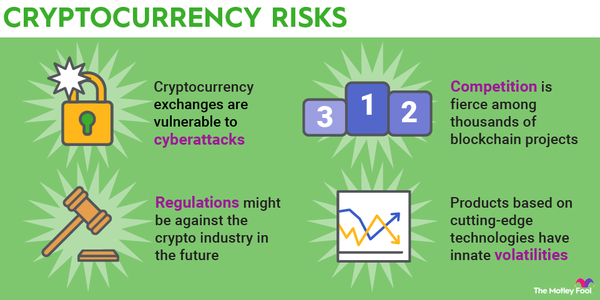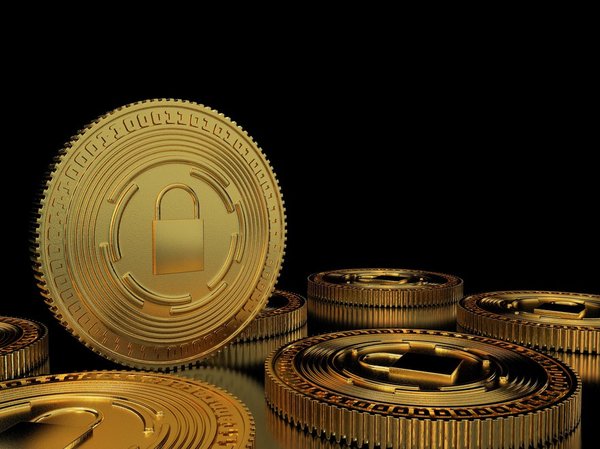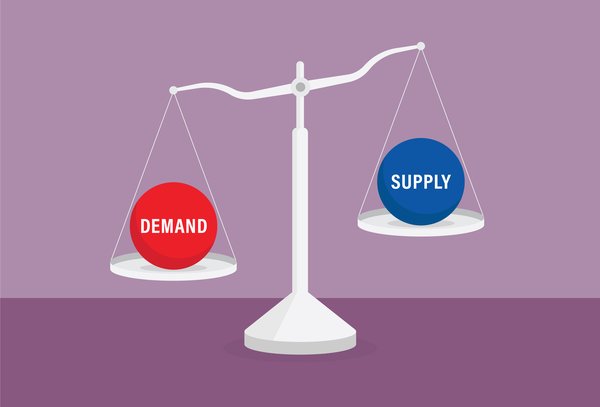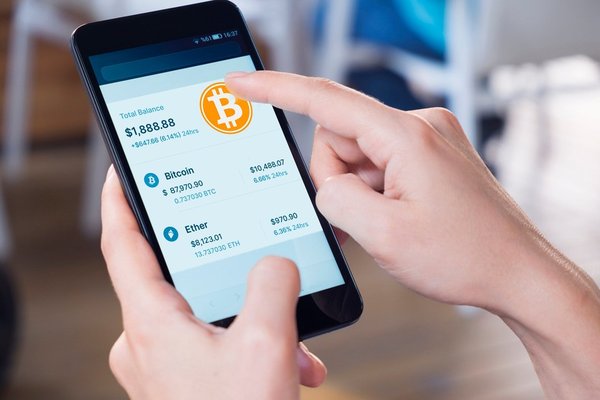In the early days of Bitcoin (BTC -4.48%), one of the terms used to describe it was "magic internet money." Although it's an amusing description, there's nothing magic about Bitcoin or any cryptocurrency. A cryptocurrency is a currency with a system it follows, albeit a very different one than fiat money.
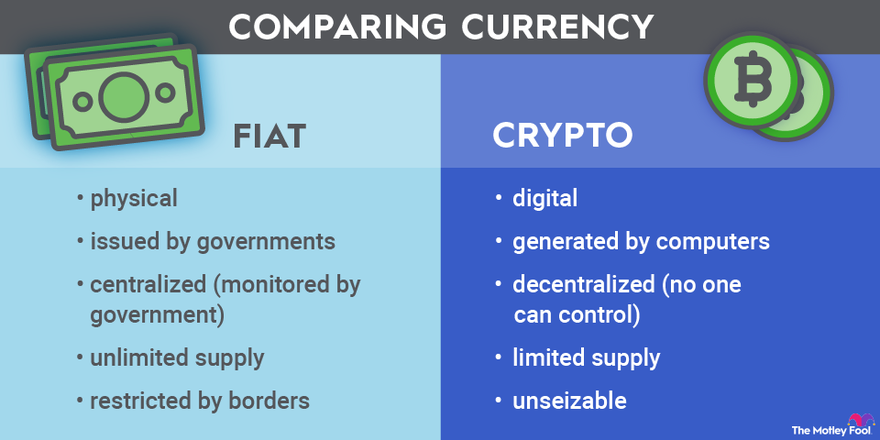
A key part of understanding cryptocurrency is understanding how it compares to and contrasts with fiat currency. Whether you're planning to use it to transfer funds, or you're considering crypto investing, this fiat versus crypto guide will explain how they work, as well as their pros and cons.
What is it?
What is fiat money vs. crypto?
Both fiat money and crypto are types of money in that they're mediums of exchange and stores of value. They have several key differences, however, most notably:
- What gives them value.
- The way they're governed.
- Their benefits and drawbacks.
We'll go into detail on those differences and how these currencies are exchanged in the sections below.
Value
Fiat vs. crypto value
Fiat currency is legal tender that's issued and backed by a government. It derives its value from a government and an economy, and its stability largely depends on those two factors. When a country goes through an economic crisis, it may see the value of its fiat money plummet through hyperinflation.
Cryptocurrency is a digital currency issued on a blockchain network. A cryptocurrency's value can be based on a variety of factors, including its:
- Utility
- Technology
- Management team
- Popularity
Popularity may not seem like it should matter in a currency's value, but we've seen several examples of it in the crypto market. The most famous is Dogecoin (DOGE -4.93%), which went through a period when its price skyrocketed despite having no competitive advantages over other cryptocurrencies.
Governance
Fiat vs. crypto governance
Central banks, which serve as a nation's monetary authority, are in control of fiat money. Through monetary policy, they determine the amount of money in circulation and when to increase or decrease the supply.
Cryptocurrency is decentralized by nature and doesn't have a central authority governing it. The supply and how it increases or decreases depends on the type of cryptocurrency; different cryptos have their own rules in place.
For example, Bitcoin uses the Bitcoin mining process to both validate transactions and mint new coins. The process mints new coins every 10 minutes, and minting will continue until 21 million Bitcoin are in circulation.
There are also plenty of other cryptocurrencies with their own unique systems. For example, some release their entire maximum supply from the beginning and then gradually remove coins from circulation.
Fiat vs. crypto exchange
Fiat currency exchanges are used to trade currencies from different parts of the world. They're typically used by travelers who need to get cash in the local currency and by investors who trade through foreign currency exchanges.
Crypto exchanges are the most common place to buy, sell, and trade crypto. Many major crypto exchanges give you the option to buy crypto using fiat money via bank account transfers, payment cards, and/or wire transfers. There are also exchanges that only allow cryptocurrency trading and don't give you the option of converting fiat money to crypto.
Advantages
Fiat vs. crypto advantages
Fiat and crypto each have their advantages. Here are the main areas where fiat money has the edge:
- Fiat money is generally far more stable than cryptocurrency. The value of major currencies, such as the U.S. dollar and the euro, don't fluctuate much compared to the wild price swings seen in the crypto market.
- Fiat money is widely used to pay for goods and services. Almost every business will accept fiat money; only a small percentage take crypto.
- Most U.S. financial institutions have FDIC insurance of as much as $250,000 per depositor. Similar protections aren't available for cryptocurrency.
Now let's look at the advantages of cryptocurrency:
- Cryptocurrencies have the potential to increase in value quite a bit, so investing in cryptocurrency can be very profitable (and also very risky). Fiat money doesn't have the same growth potential.
- Many cryptocurrencies have transactions that process in less than a minute and cost $0.01 or less.
- Cryptocurrency can be sent anywhere in the world without the intervention of a financial institution.
- Most cryptocurrencies have irreversible transactions, so merchants who accept crypto payments don't need to worry about chargebacks.
Disadvantages
Fiat vs. crypto disadvantages
Each of these types of currency also has its share of disadvantages. Once again, we'll start with fiat money:
- Fiat money transfers, and especially cross-border transfers, can be inefficient. Transfers may take days and include hefty fees.
- Some parts of the world don't have quality banking options available or a stable fiat currency. Cryptocurrency is borderless, and some cryptocurrency projects have targeted developing nations due to their lack of financial services.
- Merchants need to work with a payment processor and pay transaction fees to accept most fiat payment methods other than cash.
Here are the biggest disadvantages of crypto:
- Cryptocurrency is highly volatile, and even the largest coins can lose half their value or more in a matter of months.
- The world of crypto is full of scams. These include crypto pump-and-dump schemes and scams that target investors' exchange accounts, such as phishing texts and emails.
- Cryptocurrency doesn't offer much protection if something goes wrong. For example, if you send crypto to the wrong address or lose access to your blockchain wallet, there's no way to get it back.
How crypto will affect money printing
Money printing has played a significant role in the crypto market. When the Federal Reserve began purchasing $120 billion in bonds every month during the COVID-19 pandemic, investors flocked to Bitcoin as a hedge against inflation.
Part of cryptocurrency's appeal is the fact that it's not part of the traditional system such as fiat money controlled by the central banks. Bitcoin is also popular because of its limited supply, giving it a scarcity that fiat currencies don't have.
In the future, we could see the crypto market play more of a role in money-printing decisions. The Federal Reserve might not purchase Bitcoin instead of bonds anytime soon, but if the U.S. eventually develops its own Central Bank Digital Currency (CBDC), that could also serve as a way to print money.
Examples
Fiat vs. crypto examples
The closest fiat-to-crypto comparison would be the link between fiat money and stablecoins, which are cryptocurrencies pegged to another asset. The most popular stablecoins are pegged to the U.S. dollar. They include:
- Tether (USDT -0.02%)
- USD Coin (USDC -0.0%)
- Binance USD (CRYPTO:BUSD)
- Dai (DAI 0.01%)
Each of those cryptocurrencies is designed to maintain a price of $1, and they have advantages over both the dollar itself and other types of cryptocurrency. When they work as intended, they offer the stability of the U.S. dollar and with the transaction speeds and low fees of crypto. It's also possible to earn interest on them through crypto lending, and interest rates tend to be much higher than what you'd get on cash in a savings account.
The big disadvantage is that even stablecoins are nowhere near as secure as fiat money. Several stablecoins have failed over the years by losing their peg, leading to investors losing money.
Related investing topics
What does the future look like for fiat and crypto?
Fiat money obviously isn't going anywhere, but crypto has its uses and will likely continue growing.
It's a safe bet that fiat money will remain the dominant type of currency for saving and spending. It's a far more secure option and is also much easier to use for buying things since you can spend fiat money practically anywhere.
But crypto also has its uses. It has become a popular investment, and it can also serve as a useful alternative to fiat currency for money transfers. Caution is always recommended with this market, but it's good to at least have some knowledge of it since it will be part of the future of money.










